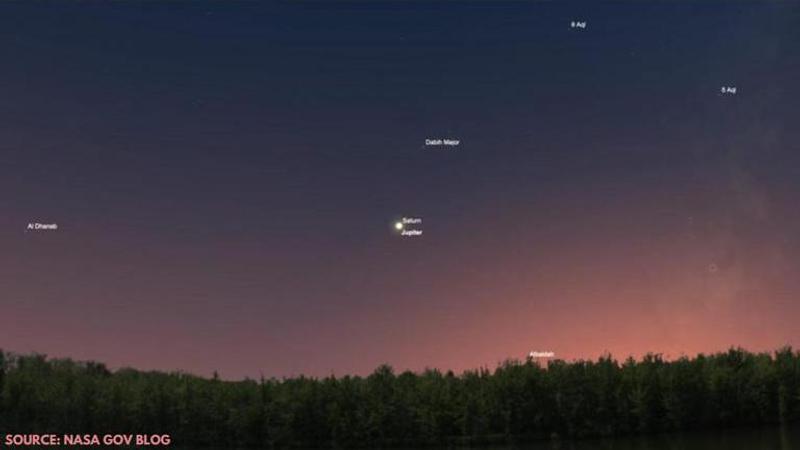Published 18:36 IST, December 21st 2020
How to see the Christmas Star? What time will it be visible?
The Christmas Star is about to light up the sky this week and it will be visible to a naked eye. How to see the Christmas Star? Scroll on for all details.

Skywatchers around the world are gearing up to witness a spectacular sight as two of the largest planets in our solar system are set to come in great conjunction. Popularly known as the “Christmas Star,” the vibrant conjunction of the two bright planets will be around the same day as the winter solstice and it’s something that you just cannot miss. So, let us quickly show you how and where to see the Christmas Star in December 2020.
How to see the Christmas Star?
NASA has reported on its website that the great planetary conjunction will be visible over the next two weeks in the evening skies as the two large planets come together, culminating on the night of December 21.
Christmas Star time
The best time to see the Christmas star is right after the sunset. If you are able to catch the event, you will be witnessing a phenomenon that hasn't taken place in nearly 20 years. In addition, this will be the first time in as many as 400 years that the two giants will appear as close to each other.
While this will be the first time in 400 years that Jupiter and Saturn will be the closest, it is about 800 years that the pairing of the two planets will be easily visible. You don't need to be a seasoned skywatcher to be able to catch the event. Interestingly, people can observe the phenomenon with their naked eye. However, one can still bring a pair of binoculars or a telescope for the best viewing experience.
Both Jupiter and Saturn are two of the largest planets in our Solar System; and when you watch the event, it will be as though you are spotting a single bright star, instead of separate planets. Skywatchers can also watch the Winter Solstice 2020, which marks the first day of winter for people in the southern hemisphere. The Winter Solstice 2020 is set to take place on December 21 at 10.02 AM GMT. However, the event is celebrated throughout the day.
Image credits: NASA Gov Blog
Updated 18:36 IST, December 21st 2020



